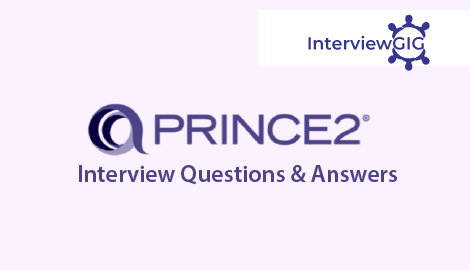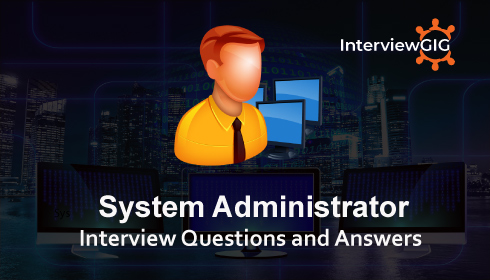What is a system analyst?
An individual in charge of designing, modifying, or analyzing various systems to ensure compatibility and user effectiveness. System analysts may work independently but are often part of a larger information technology unit that keeps technical aspects of a company running smoothly. System analysts do not focus on hard-coding, but more on evaluating the code and making suggestions.
What are the main job duties and responsibilities of system analyst employee?
- System analyst responsibilities are to develop, document and revise system design procedures, test procedures, and quality standards.
- Provide staff and users with assistance solving computer related problems, such as malfunctions and program problems.
- Test, maintain, and monitor computer programs and systems, including coordinating the installation of computer programs and systems.
- Consult with management to ensure agreement on system principles.
- Expand or modify system to serve new purposes or improve work flow.
- Assess the usefulness of pre-developed application packages and adapt them to a user environment
- Recommend new equipment or software packages.
- Confer with clients regarding the nature of the information processing or computation needs a computer program is to address.
- Read manuals, periodicals, and technical reports to learn how to develop programs that meet staff and user requirements.
What characteristics should a system analyst possess to be good at his job?
System analysts are technical experts and outstanding analytical thinkers. They are highly organized and knowledgeable about many different types of technological systems. And, also able to adapt to the various unique technological conditions which each new company brings. Its possess reasonable communication skills and are able to prepare effective reports, flowcharts, and diagrams.
What is DHCP server?
DHCP (Dynamic Host Configuration Protocol) is a protocol used to provide quick, automatic, and central management for the distribution of IP addresses within a network.
DHCP is also used to configure the proper subnet mask, default gateway, and DNS server information on the device.
Tell us about your experience in working on a team of technical and non-technical employees?
Teams are about working effectively with others. Highlight your effectiveness with others particularly non-technical and your accomplishments.
What are the skills required for system analyst employee in order to success in his work?
Using logic and reasoning to identify the strengths and weaknesses of alternative solutions, conclusions or approaches to problems, Giving full attention to what other people are saying, taking time to understand the points being made, asking questions as appropriate, and not interrupting at inappropriate times, Understanding written sentences and paragraphs in work related documents, Talking to others to convey information effectively, Determining how a system should work and how changes in conditions, operations, and the environment will affect outcomes.
How would you describe (needed system analyst or your) work style?
My work style matching exactly what cashier job requires by: being careful about detail and thorough in completing work tasks, analyzing information and using logic to address work-related issues and problems, being reliable, responsible, and dependable, and fulfilling obligations, being honest and ethical, being open to change (positive or negative) and to considerable variety in the workplace.
What SAP software applications have you used?
Supply Chain Management (SCM) and ERP (Enterprise Resource Planning)
What’s the difference between technical and functional requirements? How do you gather each?
Functional requirements:
Any requirement which specifies what the system should do.
In other words, a functional requirement will describe a particular behavior of function of the system when certain conditions are met, for example: “Send email when a new customer signs up” or “Open a new account”.
A functional requirement for an everyday object like a cup would be: “ability to contain tea or coffee without leaking”.
Typical functional requirements include:
- Business Rules
- Transaction corrections, adjustments and cancellations
- Administrative functions
- Authentication
- Authorization levels
- Audit Tracking
- External Interfaces
- Certification Requirements
- Reporting Requirements
- Historical Data
- Legal or Regulatory Requirements
Non-functional requirements:
Any requirement which specifies how the system performs a certain function.
In other words, a non-functional requirement will describe how a system should behave and what limits there are on its functionality.
Non-functional requirements generally specify the system’s quality attributes or characteristics, for example: “Modified data in a database should be updated for all users accessing it within 2 seconds.”
A non-functional requirement for the cup mentioned previously would be: “contain hot liquid without heating up to more than 45 °C”.
Typical non-functional requirements include:
Performance – for example: response time, throughput, utilization, static volumetric
- Scalability
- Capacity
- Availability
- Reliability
- Recoverability
- Maintainability
- Serviceability
- Security
- Regulatory
- Manageability
- Environmental
- Data Integrity
- Usability
- Interoperability
Why to use DHCP server?
DHCP server allowed entire process to be auto-mated and managed centrally. DHCP server maintains the IP addresses in bulk and assign an address to any DHCP enabled client when he switches on to the network. As such the addresses are dynamic rather than static, so the Addresses which are no more in use are automatically return to the bulk for re-allocation.
Which UML diagrams you usually use?
Use Case Diagram and Component Diagrams are used.
How do you coordinate and communicate with the team developers?
We as a team of developers, testers, analyst, lead and architect sit close to each other. Most of the time I would just jump to their seat and talk to them (if required). We have daily stand up where we discuss things that needs team attention.
Describe the abilities you have in order to work with us as system analyst?
I have the ability to arrange things or actions in a certain order or pattern according to a specific rule or set of rules (e.g., patterns of numbers, letters, words, pictures, mathematical operations), listen to and understand information and ideas presented through spoken words and sentences, tell when something is wrong or is likely to go wrong.
It does not involve solving the problem, only recognizing there is a problem, generate or use different sets of rules for combining or grouping things in different ways, apply general rules to specific problems to produce answers that make sense.
Your assignment is to prepare the specifications to purchase a new application. What will you do?
Among the considerations – user participation, identify the objective or deliverable for the applications, and hardware platform.
Tell us about your experience in programming?
If you feel you’re weak in programming experience, you may want to mention any formal training you’ve had.
What are the knowledge elements you obtained from your education, training and work experience would support your system analyst career?
The Knowledge of circuit boards, processors, chips, electronic equipment, and computer hardware and software, including applications and programming, the structure and content of the English language including the meaning and spelling of words, rules of composition, and grammar, principles and processes for providing customer and personal services.
This includes customer needs assessment, meeting quality standards for services, and evaluation of customer satisfaction, arithmetic, algebra, geometry, calculus, statistics, and their applications, the practical application of engineering science and technology. This includes applying principles, techniques, procedures, and equipment to the design and production of various goods and services.
What kind of software architecture your organization follow?
We have multi-tier architecture with multiple layers, we have series of web servers and applications in application tier, infrastructure libraries at middle tier and Database servers at the lower tier. We are using Oracle as Database, ESB (Enterprise service Bus) for asynchronous communication and Rest Web Services.
What characteristics should a system analyst possess to be good at his job?
System analysts are technical experts and outstanding analytical thinkers. They are highly organized and knowledgeable about many different types of technological systems. Also, able to adapt to the various unique technological conditions which each new company brings. Its possess reasonable communication skills and are able to prepare effective reports, flowcharts, and diagrams.
What are the types of requirements that a system analyst should gather and Analyze?
System analyst should gather requirements like
Technical requirements: It includes the detail about what the system is built, including which language it will be programmed in, what standards are to maintained, etc.
Functional requirements: It includes the detail about what needs to be delivered, which is
Generally, read by software engineers, project managers and business analyst
What is your technical expertise in this field?
Be specific about what you actually have training and experience in. But generally speaking, system analysts are usually experts in computer systems, hardware platforms, and programming techniques.
What does the software audit includes?
Software audit includes
- Looking into an employee’s computer system for violation of security and company’s policy
- Regular audits of all servers and computers to check whether they are updated in streamlined with all software licenses
- Adapting audit system that is least bothering to employee and their task
- Apart from regular audits, random audit should be done to check whether there is any
- Deletion or addition of software to the system.
What is the basic role of a computer system analyst?
- Provide assistance to users solving computer related problems
- Test, maintain and monitor systems and computer programs
- Co-ordinate and connect the computer systems within an organization to increase
- Compatibility
- Modify system to improve work flow
- Training and assisting staff and users to work with computer systems
- Recommend new equipment or software packages
- Determine computer software or hardware required in an organization
- Good understanding of company’s database
- Publish weekly report which identify progress made towards implementing monitoring by
- application and by environment
What is the difference between subnetting and Super netting?
When a large network is subnetted, the network is divided into at least two smaller subnetworks, with each subnetwork (subnet) having its own subnetwork address (subnetid). When super netting is performed, several small Class C networks are combined to create one large network, or supernetwork.
What you would do if you realize that business requirement is not technically feasible?
I would first try to make sure that I am correct in that understanding. Will talk to developers and architects to understand the technical challenges to accomplish it. Once I am done with my ground work, Will schedule a meeting with business stakeholders. Will gather required evidences and will present the challenges to Business.
What is your role in current position?
I am working as a Software System Analyst that specializes in understanding Business Requirements, analyzing them, Performs Cost / Benefit analysis, Make suggestions to business, translate the business requirements into technical requirements, Discuss their feasibility with the technical team, performs sizing in coordination with developers and prepare high level design document.
Can you provide the documentation required by the system analyst?
Describe the various documentations you keep as part of your daily responsibilities. Analysts document problems as well as the solutions required or implemented. They make records of inventory and maintain system documentation.
Some Most Common System Analyst Interview Questions wIth Sample Answers
- How do you persuade a doubtful manager to get on board with your suggestions?
- Why do you like to work as system analyst?
- What could you do not like to work as system analyst?
- What are your future steps after experience you’ll gain from your system analyst job?
- As system analyst, what training courses or extra education that you think will improve your work performance?
- How would you reconcile different opinions on the deployment date of a new program?
- What salary do you expect you’ll get from being system analyst employee?
- How do you perform a software audit on a PC or Mac?
- Describe a time when you had to deliver a presentation. How did you explain technical details to a non-technical audience?
- Have you ever implemented a cost-reducing system? What was it and how did you come up with the suggestion?
Question 1: How do you persuade a doubtful manager to get on board with your suggestions?
Sample Answer: Employing a diplomatic approach, I’d present compelling data supporting my suggestions, emphasizing the positive impact on efficiency and productivity. Addressing concerns empathetically and showcasing potential benefits would be key in gaining the manager’s confidence.
Question 2: Why do you like to work as system analyst?
Sample Answer: System analysis aligns with my passion for problem-solving. I enjoy dissecting complex issues, optimizing processes, and contributing to system enhancement. The role allows me to apply analytical skills in a dynamic environment, fostering continuous learning and growth.
Question 3: What could you do not like to work as system analyst?
Sample Answer: While I thrive on analytical challenges, the repetitive nature of some routine tasks might be less engaging. However, I view these tasks as opportunities for process improvement and automation, allowing for a more efficient workflow.
Question 4: What are your future steps after experience you’ll gain from your system analyst job?
Sample Answer: Post gaining experience, I aim to take on leadership roles, contributing to more challenging projects, and staying updated on emerging technologies. Continued professional development and mentorship will be pivotal for achieving these goals.
Question 5: As system analyst, what training courses or extra education that you think will improve your work performance?
Sample Answer: To enhance my performance, I would pursue training in data analytics, project management, and emerging technologies like machine learning. Staying informed about industry trends ensures I bring valuable, up-to-date skills to my role as a system analyst.
Question 6: How would you reconcile different opinions on the deployment date of a new program?
Sample Answer: I would facilitate open discussions among stakeholders to understand concerns and priorities. Through collaboration, we would evaluate technical feasibility, project requirements, and business objectives. Establishing clear communication channels and setting realistic expectations would help find a mutually agreeable deployment date that satisfies both technical and business needs.
Question 7: What salary do you expect you’ll get from being system analyst employee?
Sample Answer: Considering factors like my experience, industry standards, and the specific responsibilities of the role, I anticipate a competitive salary reflective of my skills and contributions. I’m open to negotiation based on market trends and the value I bring to the organization.
Question 8: How do you perform a software audit on a PC or Mac?
Sample Answer: Conducting a software audit involves compiling a list of installed programs, verifying licenses, and identifying any unauthorized software. This process includes checking for updates, ensuring compliance with licensing agreements, and removing any redundant or obsolete programs to optimize system performance and security.
Question 9: Describe a time when you had to deliver a presentation. How did you explain technical details to a non-technical audience?
Sample Answer: When presenting technical details to a non-technical audience, I focus on simplifying complex concepts using analogies and visual aids. I tailor the content to suit the audience’s level of understanding, emphasizing the practical implications and benefits of the technical aspects discussed to ensure clarity and engagement.
Question 10: Have you ever implemented a cost-reducing system? What was it and how did you come up with the suggestion?
Sample Answer: In a previous role, I proposed a cloud-based storage solution to replace on-premises servers, reducing hardware costs and improving scalability. The suggestion stemmed from a comprehensive cost-benefit analysis and collaboration with stakeholders. Implementing the system involved meticulous planning, seamless migration, and ongoing monitoring to ensure its effectiveness and efficiency.






